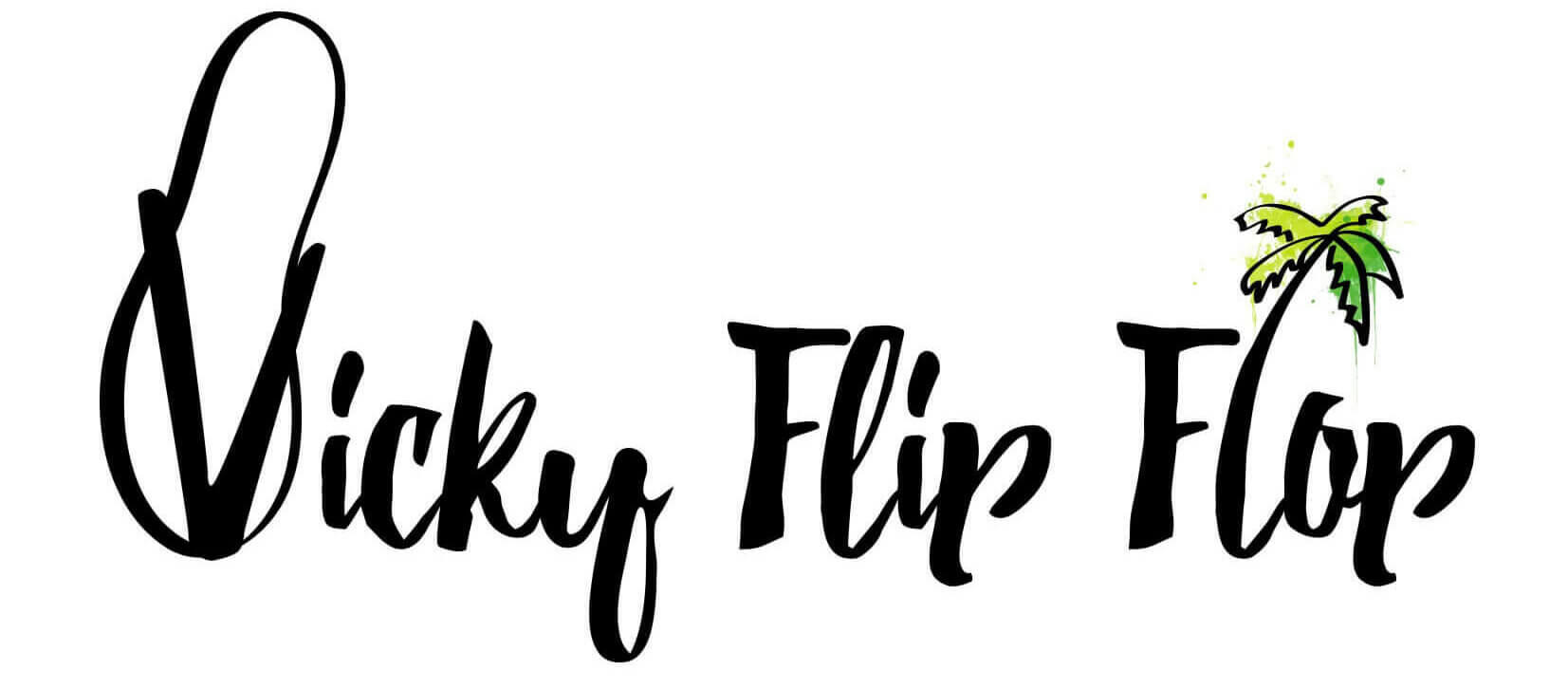Festivals in Ethiopia (What to Know Before You Go)
There are some great festivals in Ethiopia. It’s more about quality than quantity here though. Religious festivals dominate with Islam and Christianity being the reigning beliefs, but there’s also the infamous Ethiopia Run too.
Anyone I know who’s been to Ethiopia has loved it. If you’re planning a trip, think about organising your holiday in Ethiopia around one of the festivals. This way you’ll have a truly unique experience.
I really believe that festivals give a fast track insight into a destination’s culture, and with one as fascinating and unique as Ethiopia you’ll welcome all the help you can get.
Just so you know, I haven’t actually made it to Ethiopia yet, but of course, I’m always interested in the festivals Ethiopia has to offer. So, let’s take a look shall we?
Festivals in Ethiopia
Timkat / Epiphany
(19th January)
Timkat is probably the most famous of all the festivals in Ethiopia. Timkat commemorates the baptism of Jesus by John the Baptist in the River Jordan. It’s the most colourful festival of the year.
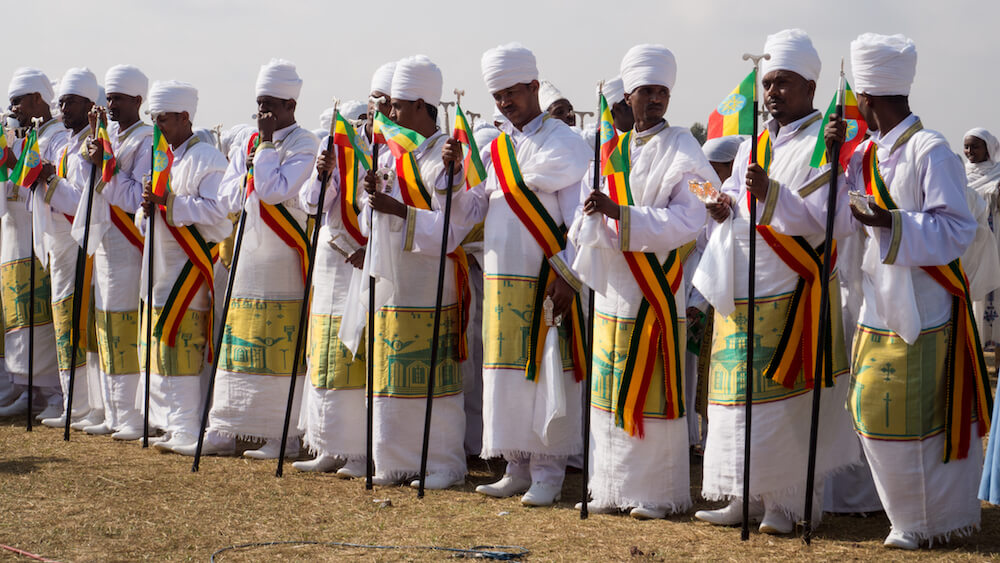
Timkat lasts three days to celebrate the Tabot, the Ark of the Covenant containing the Ten Commandments. This is something that’s in every church and on Timkat it’s taken out, covered with a cloth and taken to a tent, close to some water. This ceremony will be accompanied by songs, trumpets and incense too.
The tabot is then kept in a tent while the priest holds vigil through the night with candles and oil lamps. Followers stay to pray, sing and dance into the next day. The water body is then blessed and sprinkled on the followers who’ve stayed all night – to have a drop touch you is sacred. Tabots then return to their churches.
Gondar in Ethiopia is known as one of the best Timkat experiences, and the biggest parties. Otherwise, the capital Addis Ababa has one of the most notorious Timkat celebrations, at Jan Meda. This is the most important and well known of all of Ethiopia’s festivals.
Higher altitude
Ethiopia has a higher altitude (1500 metres) compared to a lot of western countries, meaning tourists may get altitude sickness. And that is why tourist a lot of tourists get to experience altitude sickness there. When you arrive there, you may feel a bit of headache and shortness of breath.
Keep the physical activities to a minimum for the first few days. The capital, Addis Ababa, is 2350 meters above the sea level. Adjust to the environment first and then do any heavy lifting.
Great Ethiopian Run
(Last Sunday of November)
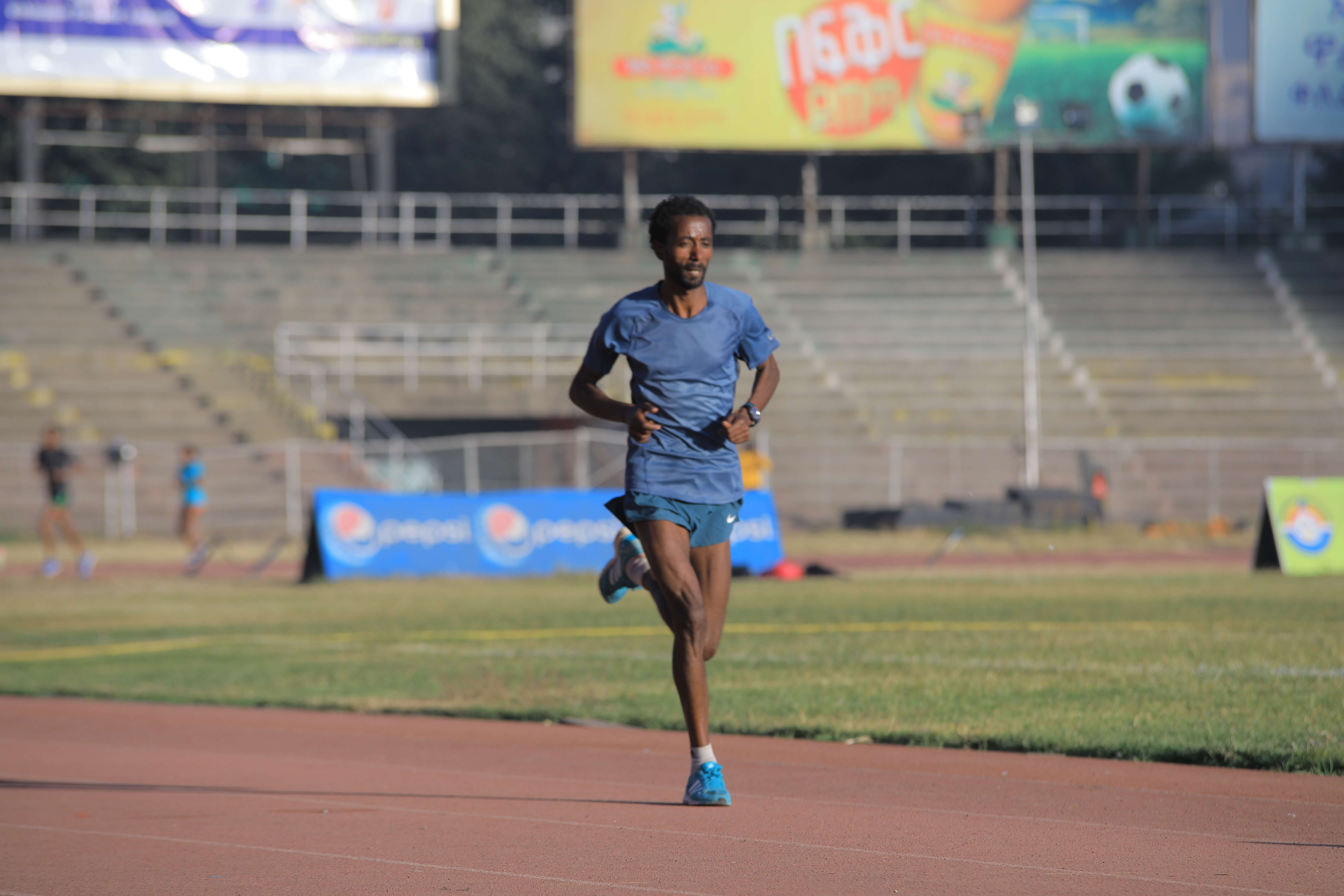
The Great Ethiopian Run is one of the biggest events in Africa. I was invited to this last year but unfortunately couldn’t go – it would’ve been amazing!
The Great Ethiopian run is kinda like a festival in that in 2017 there were over 44,000 participants, and even more spectators. If you’re anywhere in or around Ethiopia in November, it’s an absolute must to fit into your schedule. There are races of all different kinds of distances, and of course, with that many people around there are lots of post race celebrations too.
Visas for Ethiopia
While some African countries grant visa-free entry, you will still need a VISA for Ethiopia. How you can obtain a visa and what are the requirements varies from country to country. For example, in the case of British citizens, the applicant can apply for an e-visa that will be valid for 60 to 90 days. The visa can be extended as well; all you need to do is visit the immigration office in the capital.
Meskel
(September 26th)
Meskel is the biggest Ethiopian Orthodox festival and takes place every year in September. The story behind Meskel relates back to Queen Helena (Empress Helen) the Mother of Constantine the Great back in the year 326.
Apparently she found the exact cross on which Christ was crucified. She lit torches to celebrate and her friends rejoiced.
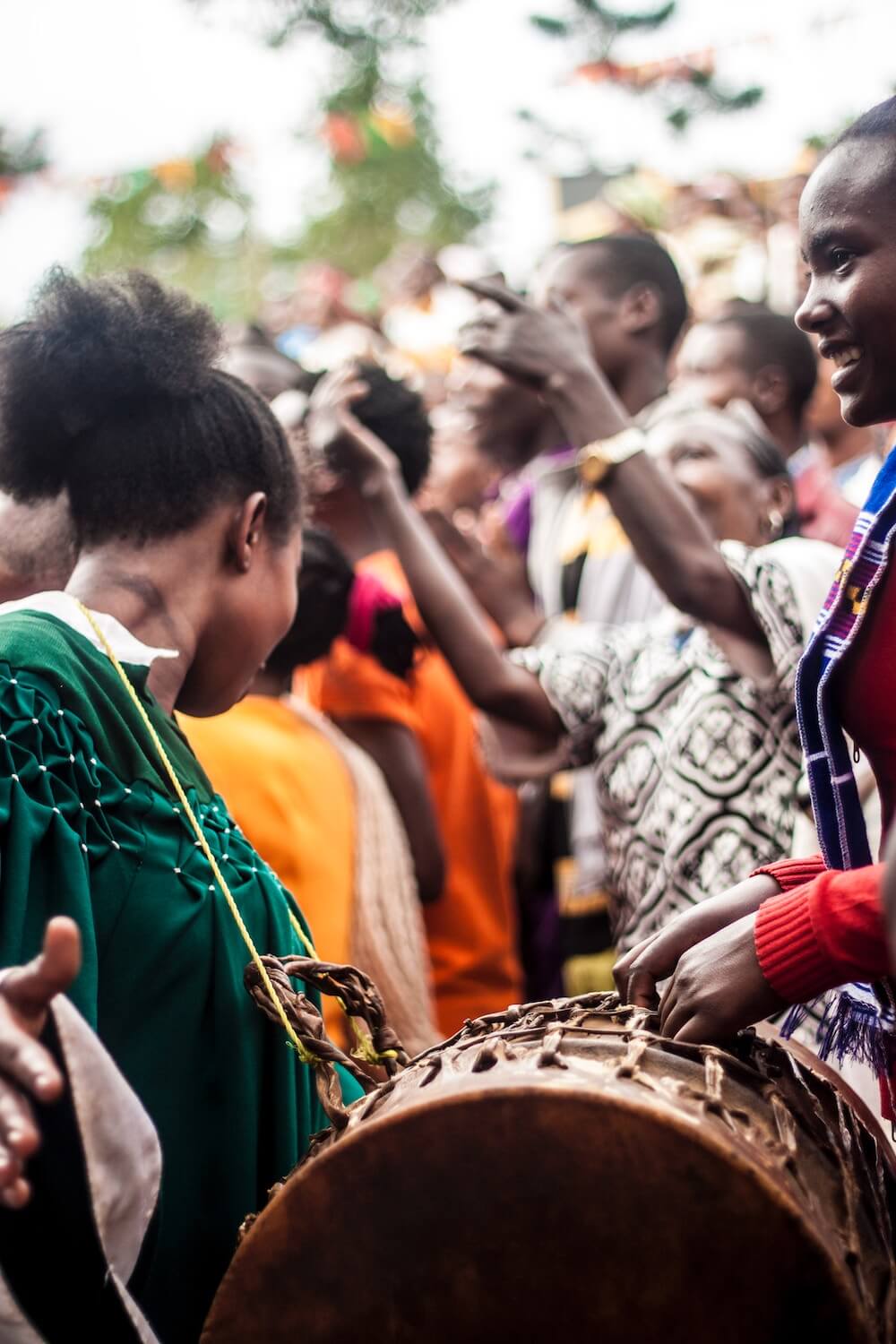
Then, in the Middle Ages, the Patriarch of Alexandria gave the Ethiopian Emperor Dawit half of the ‘True Cross’ in return for protection. It’s believed a fragment of the True Cross is held at the Gishen Mariam, about 70km northwest of Dessie.
Ethiopians have been celebrating Meskel for millennium.
They celebrate now with bonfires, flowers, singing and dancing. Smaller bonfires, known as Demeras are made in neighbourhoods and it’s believed the way that the splinters fall from the lit fires is significant and very telling. Where they fall on the compass affects how good the crops are going to be that year, and how the rain falls after.
Like most religious festivals, Meskel is very symbolic. If you’re going I’d join a tour to really get the most out of the food and drink rituals of this Ethiopian festival.
Use ATMs for cash
When you land in Ethiopia, sometimes it is hard to exchange the currency. They only take only a handful of currencies for exchange and the process is inconvenient. Instead, there are plenty of ATMs throughout the country so you can get money out from there. There’s one at the airport too.
Enkutatash (New Year)
(11th September)
The Ethiopian calendar has 12 months of 30 days each and a 13th month of 5 days (6 in a leap year). Some clever marketing people call Ethiopia ‘the country with 13 months of sunshine’.
And so, the Ethiopian New Year is celebrated at a different time to the Western calendar. It falls on the date that the Queen of Sheba allegedly arrived back in Aksum after visiting King Solomon in Jerusalem. This is one of the most important Ethiopian festivals of the year.
To celebrate this new year children dressed in new clothes dance and give out paintings of angels. In return they get bread or sometimes money. It’s traditional on Ethiopian new year for torches of dry wood to be burned in front of houses while crowds sing and dance. Once the ash has fallen they will jump the ash to mark the shift from the old year to the new.
A different time & calendar
Ethiopians do not have the same calendar or time system as western countries. When the sun rises at 6AM in the west, they refer to it as 12 o clock. So dusk, is the start of the 12 hour clock.
Similarly, their calendar is also different. It’s almost seven years behind as they follow the Ethiopic calendar instead of the Georgian calendar. As we are about to enter 2020, Ethiopia just entered in 2012 in September 2019.
Genna / Ethiopian Christmas
(7 January)
With their different calendar, the Ethiopian Christmas falls on the 7th January of the Gregorian calendar. This is the big opportunity for the people to dress up in celebration.
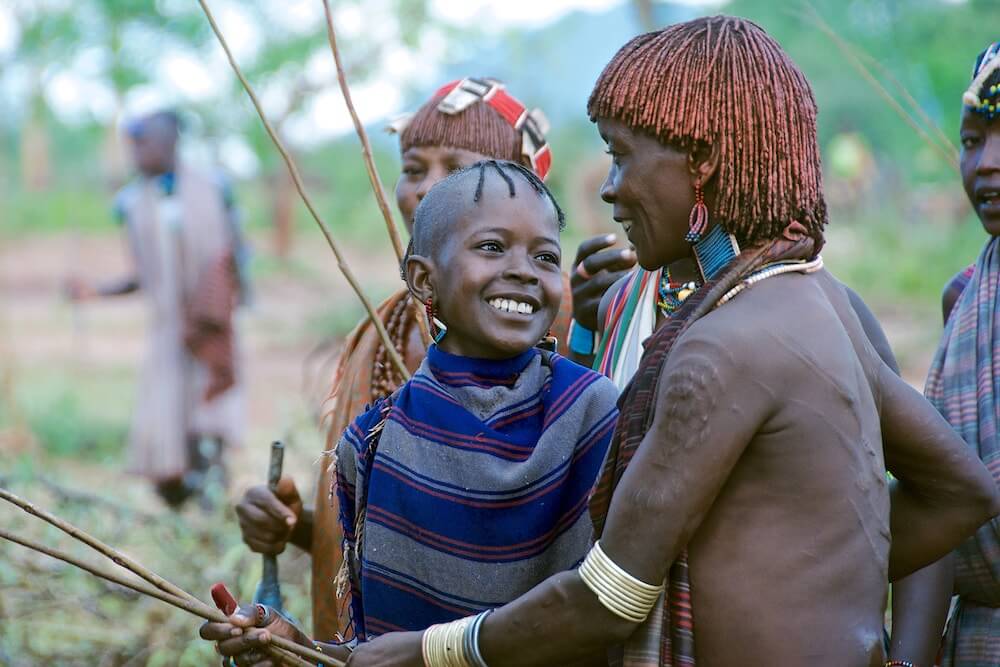
The festivities for Genna begin at around 6am when people start to gather in the churches for mass. Clergymen have already been fasting for 43 days by this point, to cleanse their bodies and souls for the birth of Christ.
The three-hour service is received stood up, while the crowd sing and chant in Christian prayer and song.
After the service the clergymen’s fast is broken and everyone goes home to feast – much like in England. Food served at Ethiopian Christmas includes Doro Wat and Injera, a spicy chicken stew eaten with the sourdough pancake-like bread. People celebrate with friends and family and only small gifts are shared.
Christmas is one of the biggest festivals in Ethiopia, but you may have trouble finding a ‘traditional’ Ethiopian Christmas unless you have friends or family you can join there.
